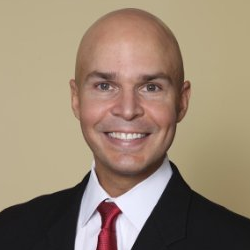 My partner, Laura Zois, conducted a videotape trial cross-examination of frequent flyer defense medical expert, Dr. Robert O. Gordon, a doctor who makes a lot of money working for insurance companies and, frequently, for State Farm. During his examination, he spewed out many inappropriate and factually incorrect statements. Here is an example:
My partner, Laura Zois, conducted a videotape trial cross-examination of frequent flyer defense medical expert, Dr. Robert O. Gordon, a doctor who makes a lot of money working for insurance companies and, frequently, for State Farm. During his examination, he spewed out many inappropriate and factually incorrect statements. Here is an example:
Q. And why not, Doctor? Would you explain the reasons for your opinion?
A. Well, first of all, there was nothing in the emergency room report, or in the report of the doctors that he was sent to by his attorney, that indicated that —
The client’s testimony was that he went to his family doctor first and was referred by his family doctor to the orthopedic surgeon. But Dr. Gordon has been doing this so long he assumes that someone did. The first thought is to file a motion to strike this testimony. But doesn’t his incorrect statement just underscores that he is not only a testifying doctor but an advocate? Isn’t it better that a jury sees this?
Here is another example:
A. No. Why don’t you ask — this Maryland Orthopaedics how many patients they see at the request of attorneys every day?
Q. Because this isn’t their deposition.
A. If you want to get rich doing — . . . — medical legal work, that’s what you do.Plaintiffs move to strike this testimony because
Ignoring the rich irony of a man making hundreds of thousands of dollars testifying, Dr. Gordon’s lashing out at another health care provider again underscores he is an advocate for the insurance companies. Why not let the jury hear that?
Here are a few more exchanges:
Q.Okay. Who do you have as your staff?
A. I have staff. I’m not going to tell you who they are, because I get harassed by people like you all the time.
MS. ZOIS: Objection
THE WITNESS: I get phone calls at home.
MS. ZOIS: Move to strike.
THE WITNESS: I get people knocking on my door at midnight. I would like to explain why I’m not giving you that information. If you did that to my employees, I wouldn’t have any employees.
Q. I guess I was just thrown off by why you included the overhead.
A. Well, because I think it’s nice for you to get an idea that, unlike the doctors that treated this patient, the vast majority of my income has been from taking care of people —
MS. ZOIS: Objection. Move to strike.
THE WITNESS: — and not from selling drugs, not from —
MS. ZOIS: Objection. Move to strike.
THE WITNESS: — taking x-rays, and selling appliances.
Q. You referred to passive physical therapy. Is that — what does that mean? What does that term mean?
A. Well, the reason I said that is because some of these therapy places that have a big practice in treating patients that lawyers send them to —
MS. ZOIS: Objection. Move to strike.
THE WITNESS: — charge for things called therapeutic exercises. And what some of these places do is they — and particularly the doctor-owned facilities — is they buy an exercise bicycle and they’ll put the patient on an exercise bicycle and they’ll charge them “therapeutic exercise.” It just means riding on an exercise bicycle, which — which is a bit — is a bit preposterous. I mean, they get – the bicycle can be paid for in a week and then the rest of it is just — that’s why doctors who do this kind of work can be on the golf course and making a fortune.
Isn’t this just incredible? After this, Dr. Gordon may as well come up to the lectern and try the case along with defense counsel. Not that far of a stretch after this testimony.
This was not a large case. It was originally a District Court (small claims) case that got bumped up to Prince George’s County Circuit Court because the Defendant filed for jury demand. A Prince George’s County jury awarded $22,000 which was more than twice the offer State Farm made. Did Dr. Gordon’s testimony figure into the verdict? Who knows? But many personal injury lawyers would have sought to exclude that testimony because they could.
It is hard for lawyers to resist fighting a fight the lawyer knows he/she can win. Instead, it is better to figure out first whether the otherwise inadmissible and overreaching statements hurt or help your case. In this case, I think the testimony helped our clients’ case (and amused the jury from an otherwise boring video of the doctor’s testimony).
- How not to object at a deposition
- Deposition scheduling challenges
- Protecting the victim during a deposition
- Sample deposition transcripts
 Maryland Injury Law Center
Maryland Injury Law Center

